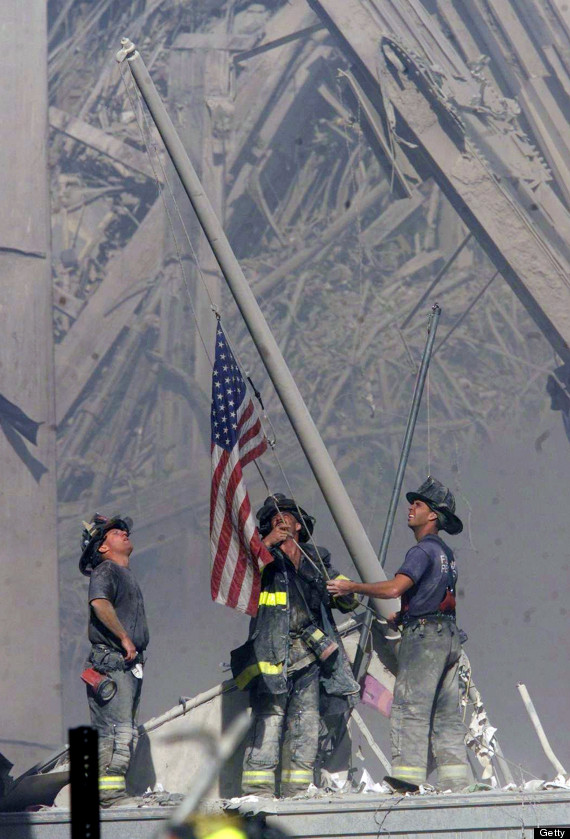
Fifteen years later, the majority of people (or perhaps it's just what the media chooses to focus on) seem to avert the topic. "Let's move on." Though "moving on" is essential to growth, we can't deny the devastation of that day. Family members and friends don't want to forgot those who died and for us to do so involves a level of dishonor to what they conceded.
In remembering, we....
- Reset our priorities. What is truly important? Am I putting my time and energy into those things? After 9/11, people left work and school and spent the rest of the day with loved ones. Estranged relationships were amended through forgiveness and phone conversations across the continent. People who had written off God stepped over the threshold of their local church, looking for eternal hope.
- Restrain evil. When we remember what can happen, we decide that we will be different. We can't change everyone (or anyone?), but we can change who we choose to be. We decide to demonstrate compassion, service, and light to a world shadowed in darkness. Philip Yancey says that "If the church does its job, people don't torment themselves wondering where God is. They know the answer. God becomes visible through people who live out the mission that Paul expressed so well" (The Question That Never Goes Away 150).
- Regenerate through pain. God doesn't want to waste our suffering. If the Lord swooped in every time evil would strike, would we cease to have free will? If He saved us from every painful experience, would we turn to Him and find spiritual restoration? Should life be void of sorrow and agony would we look to our Creator for our purpose and salvation or would we declare, "I've got this"? C.S. Lewis said, "God whispers to us in our pleasures, speaks in our conscience, but shouts in our pains; it is His megaphone to rouse a deaf world." Romans 8:28 may not make much sense when we contrast it to our experiences, but we trust that God filters the ingredients to receive the best possible outcome. In The Goodness of God, Randy Alcorn relates an experience as a child. His mother used to make the best cakes, but when he tested the ingredients separately (vanilla, eggs, baking soda, etc.), nearly everything tastes horrible. Still, when baked together, the cake became this delicious end product. "In a similar way, each trial and apparent tragedy tastes bitter to us. Romans 8:28 doesn't tell me 'it is good' if my leg breaks, or my house burns down, or I am robbed and beaten, or my child dies.Rather, God carefully measures out and mixes all the ingredients together, including the most bitter ones, and in the end, as measured after life here is done, produces a wonderful final product" (98).
No comments:
Post a Comment